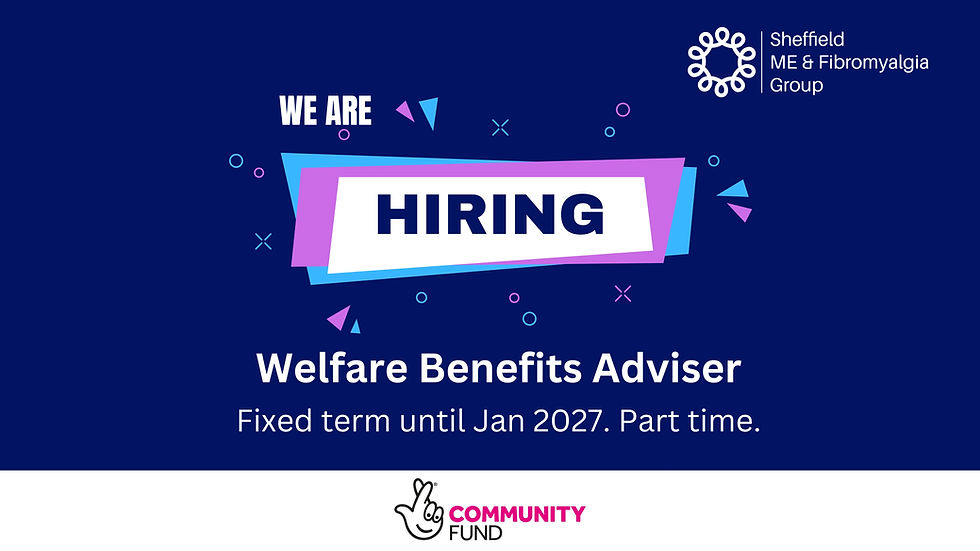Benefits support for disability and ill-health
- SMEFG
- Jul 27, 2021
- 3 min read
Yesterday the Government published its long-awaited ‘Shaping future support: the health and disability green paper’, which looks at ‘how the Government can help people to live more independently, including support to start, stay and succeed in work and ways we can improve the experience people have of the benefits system’. In the paper, the Government outlines key areas for improving support, and invites people to comment on a range of questions.
The consultation period will last until 11th of October 2021. You can fill in the consultation survey here. The form is quite long, and has space for you to give detailed answers, but you can save and return to it later.
Here’s Sarah and Ellie’s (our benefits advisors) take on the proposals made in the green paper:
In the new health and disability green paper, the Government does acknowledge that there are problems with the current support system for disabled people and those living with long term health conditions. However, the paper also highlights that the fundamental principle of our welfare system is, and will continue to be, that work is the best way out of poverty, and that work has an overwhelmingly positive impact on health and wellbeing. There are lots of reasons why this is an issue, and lots of research to back it up. A 2020 report by the Resolution Foundation found that sustained employment alone is not enough to eliminate poverty, and the benefits system still has a big role to play. However, for those living with an energy impairment in particular, welfare support should enable people to rest and pace, not coerce them into work at all costs.
Some key points we took from the paper included:
The Government plans to continue to make use of digital support. For example, having a digital form option for the PIP2 and Access to Work forms, and the option of telephone or video Jobcentre appointments
The Government does not seem to be moving towards a single assessment for PIP and ESA/Work Capability, at least in the short term. Disabled People’s Organisations raised concerns over this proposal when it was first made, because of the possibility of people losing all their benefit income following one assessment. However, there is discussion of, longer term, moving towards a single benefit. While this is framed as simplifying the system, there is clearly the possibility that this could lead to reduced financial support.
The paper discusses issues relating to the assessment and reassessment process. The Government states its intention to make greater use of triaging to reduce the number of face-to-face assessments, and to reduce the number of re-assessments.
The paper makes note that some claimants feel that the assessor they had didn’t understand their condition. This is definitely something we find in the case of chronic pain, chronic fatigue and post-exertional malaise. The paper proposes the possibility of being able to request an expert to help support assessors and decision makers.
The paper includes a question about how best to gather further evidence to support claims, and how to ensure that any evidence gathered fits the criteria of the relevant benefit. It is certainly the case that many health professionals don’t have much knowledge about how disability and health benefits are assessed. However, rather than putting increased responsibility on health professionals, we would suggest that DWP decision makers put more weight on the extensive written and verbal evidence that claimants are required to provide.
Although the green paper doesn’t directly refer to long covid, it does reference forecasts from the Office for Budget Responsibility which suggests that the number of people needing support is likely to go up, in part due to long covid.
We’d be interested to hear what you think about the Government’s proposals, and encourage everyone to fill in the consultation survey!







